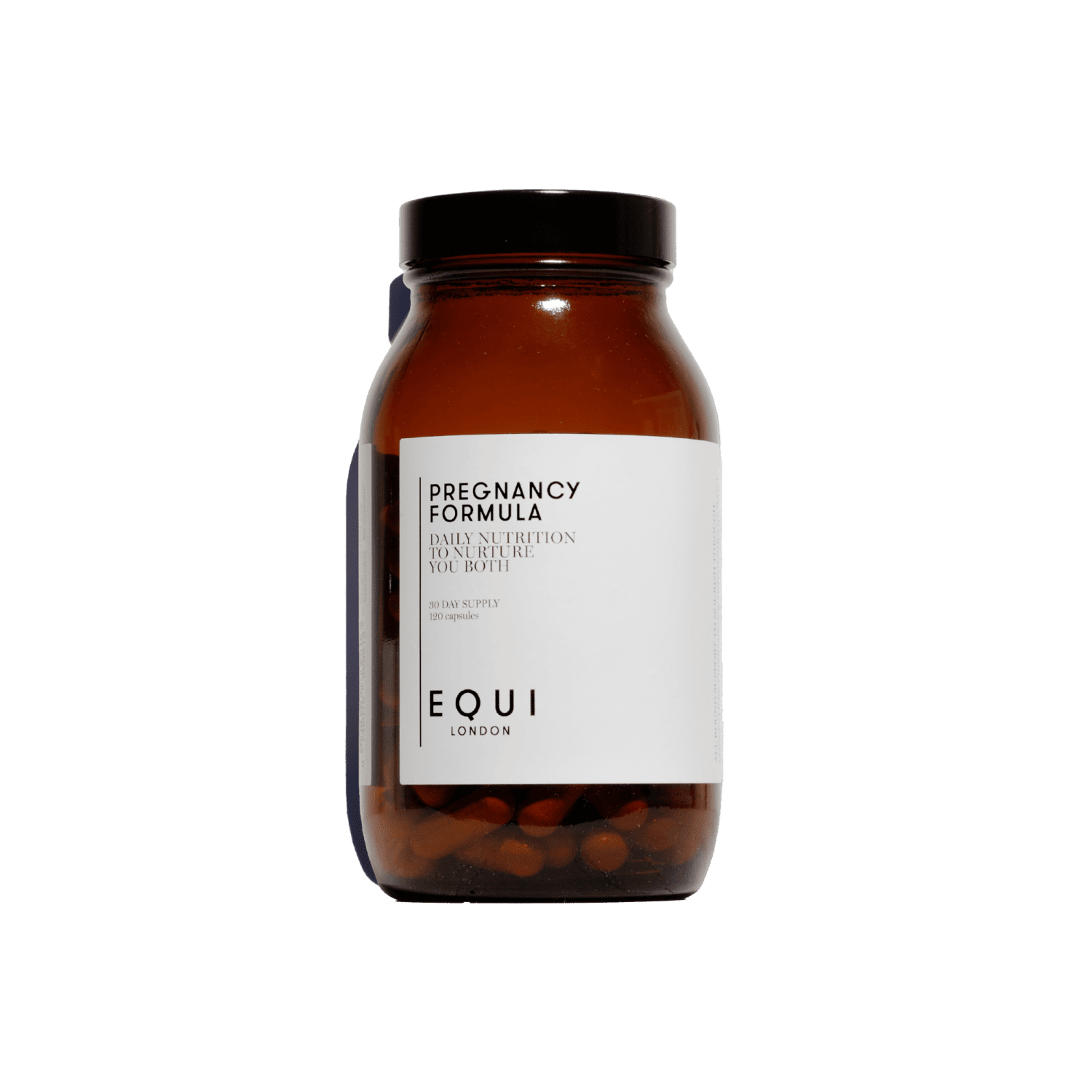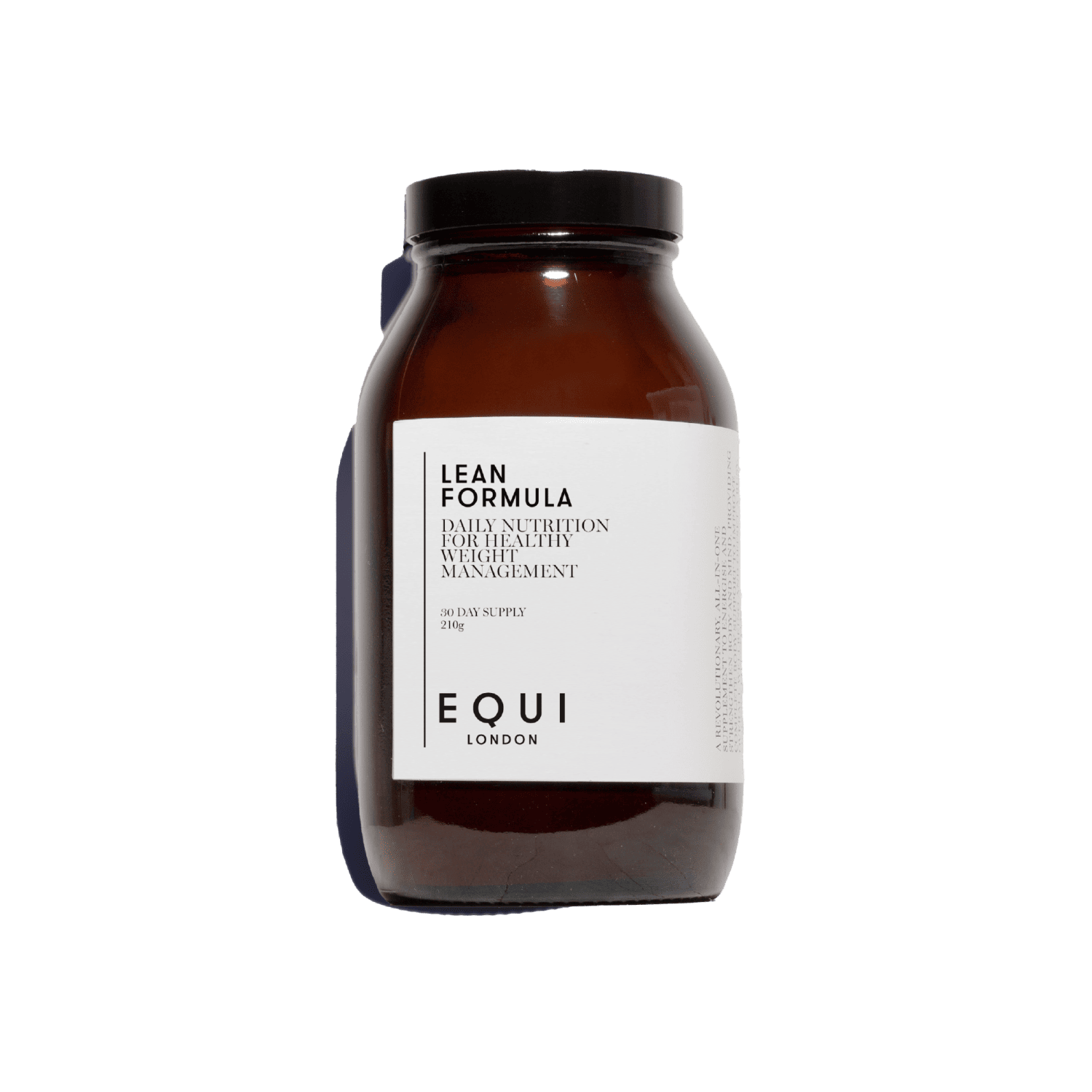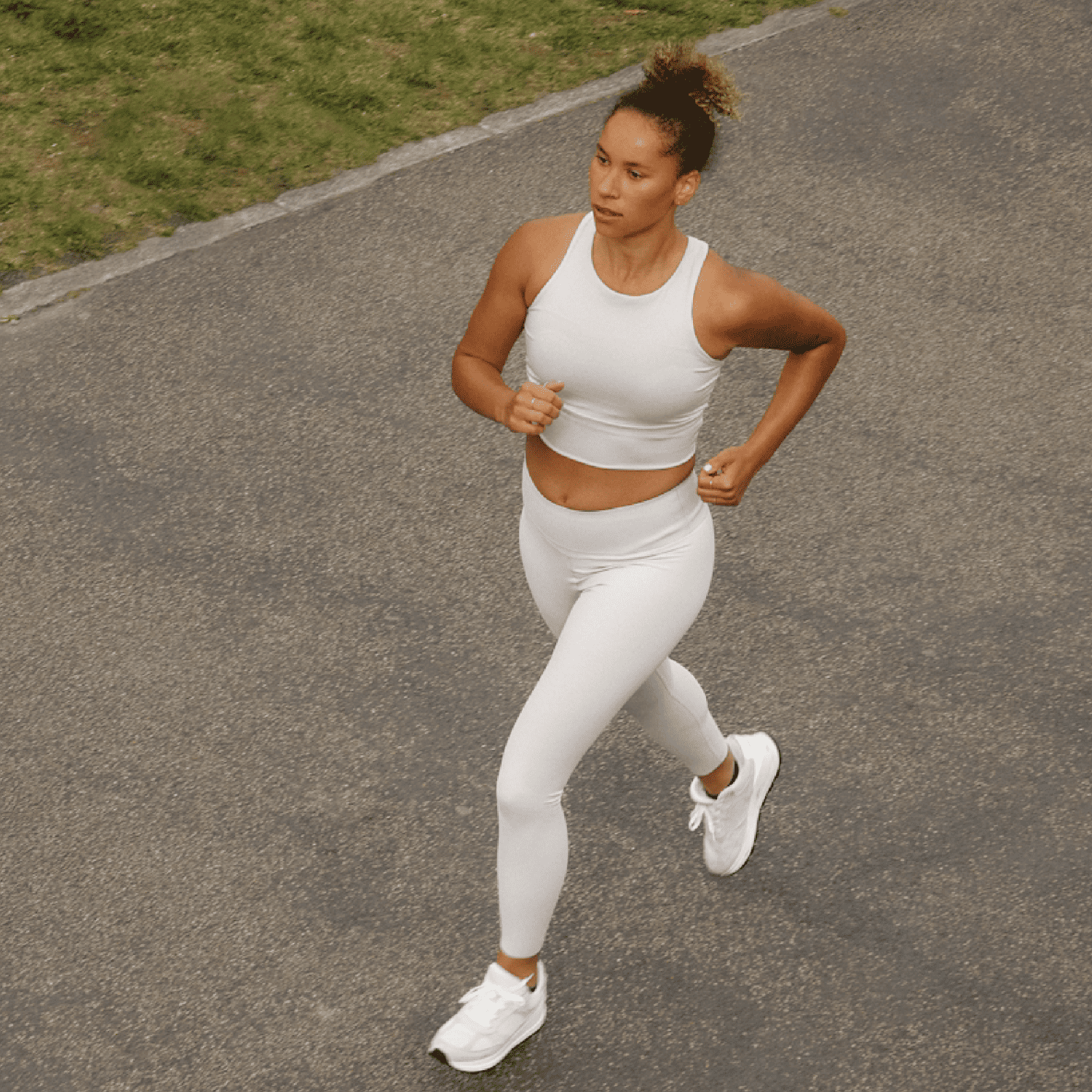 For many women, getting pregnant is the first time they begin to really consider the importance of their diet and nutrition. No matter whether you worry too much about your own health, we innately all want to grow a perfectly healthy little human, and research shows a great many links between the health of a mother and the health of her baby, as well as the health of the father prior to conception.
For many women, getting pregnant is the first time they begin to really consider the importance of their diet and nutrition. No matter whether you worry too much about your own health, we innately all want to grow a perfectly healthy little human, and research shows a great many links between the health of a mother and the health of her baby, as well as the health of the father prior to conception.
Our co-founder Rosie was pregnant with her little girl as Equi was launched, and this led us to hunt for the best pregnancy supplement out there to keep her feeling energised, mentally sharp, with strong immunity, whilst also ensuring her growing baby got everything she needed. The results of this search left her disappointed and confused, and with a lack of products containing all the key vitamins and minerals in high-quality forms, we realised just how needed a better pregnancy supplement was.
After almost a year of research, searching for the best suppliers and top quality ingredients, Equi’s Pregnancy Formula was born (pardon the pun ;) )
How does it support me and my baby?
- Top quality multivitamin to deliver all the key pregnancy nutrients.
- Specific vitamins and minerals that help regulate hormone balance in preparation for conception.
- Contains folic acid and B12 to aid cell division in the early stages of pregnancy and reduce chances of neural tube defects.
- Choline and omega 3 (in our Pregnancy Fish oil formula) support baby’s eye health and brain development.
- Vitamin C to help support Mum's immunity to keep her strong throughout pregnancy.
- Energising, easy-absorbable iron to help reduce fatigue. We use Ferrochel®, which has been specially formulated by brilliant company Albion, and found to be softer on the stomach and is less constipating.
- Highest quality, gentle chelated forms of minerals that are well absorbed by the body and can help to discourage cravings and nausea. We also sourced these from premier supplier Albion.
- Ginger, to help discourage prgnancy nausea.
General Dietary Guidelines for Fertility, Pregnancy and Breastfeeding
Pregnancy can be a tricky time when it comes to diet – cravings, morning sickness, exhaustion and brain fog can make food choices difficult, and many women often end up feeling confused and lost.
Though everyone is different and we need to eat according to what we like, our lifestyle, preferences and objectives, here are Alice’s top tips to try to incorporate into your diet when either trying for a baby, pregnant or breastfeeding. We also recommend that men adhere to this where possible before conception.. Up until this point they provide 50% of the raw materials after all!
Do your best to try and include the following general guidelines where possible. This wont always be possible, and you shouldn’t beat yourself up about it (lets face it we all do enough of that already!!) but use this as a guide.
Try to get..
- 5-7+ portions of colourful vegetables per day, with 2 portions of fruit per day.
- Wholegrains (such as brown rice, oats, buckwheat, quinoa, sweet potato or pulses) should form up to 70% of your breakfast, and around 25% of your plate at lunch and dinner. Phew – we hate cutting carbs!
- Lean protein – chicken, turkey, beef, venison, eggs (not soft boiled).
- For vegetarians and vegans - try to get a portion of protein with each meal – beans, pulses, nuts, seeds, tahini, tempeh, hard cheese (if you eat it, but be aware of the soft cheese limitations as below), miso paste, organic dairy, hummus/bean based dips, flaxseed, hempseed, vegan protein powder.
- Oily fish 3/week– salmon, mackerel, fresh tuna, sardines, anchovies. It’s a good idea not to go too much above this, as some fish can contain mercury. You can also eat white fish such as cod, haddock on top of this, which contains less fat and therefore less mercury.
- Extra virgin olive oil, hempseed and avocado oil – 2 portions each day (1TBSP = 1 portion).
- Variety of raw nuts and seeds – 2-3 portions (palmful = 1 portion) per day. Ideal sprinkled over porridge or muesli, added to salads, smoothies or vegetable dishes.
- Digestion supporting foods such as apple cider vinegar (added into dressings), peppery salad leaves (rocket, watercress) lemon, fennel, pomegranate, fresh spices such as ginger, turmeric, garlic, oregano, thyme and rosemary.
- Fermented foods – sauerkraut, beetkraut, kimchi, dairy or coconut kefir, full fat yoghurt.
- Foods rich in fat soluble nutrients vitamins A, K, D and E. These include organic full fat dairy, oily fish, eggs, dark green leafy veggies, butternut squash, meat, fish, natto, nuts, seeds and avocado.
- Choose organic dairy when you do eat it (cheese, milk, full fat yoghurt, butter) as well as some dairy free alternatives such as almond, oats and hazelnut milk (but be sure it’s sugar free!).
- Drink enough water! So simple but so important especially in pregnancy and breastfeeding. Aim for 2-3L per day but we do suggest sipping it over the day rather than gulping to prevent needing even more loo breaks!
- Ideally you should already be using it, but be sure to apply SPF50 on your face from the moment you get pregnant to reduce chances of pigmentation on your face. Once you have this it's very hard to get rid of, so be vigilant through the summer months and avoid putting your face in the sun!
Try to get less of:
We think pregnant women have license to eat what they want, and if you’re craving it, then a girl's gotta do what a girl's gotta do ;) . BUT do be mindful about over-reliance on these foods:
- All added sugar in drinks, confectionary, desserts, snacks, cereals.
- Low fat ‘diet’ foods or snacks, which tend to contain sweeteners and flavourings, as well as white carbs. Often devoid of nutrition and leave you feeling hungry an hour later.
- Refined white carbs (white rice, white pasta, pizza, white bread and cakes/biscuits) where possible in favour of wholegrain, as above.
- Deep fried food and pastries.
- Take-aways rich in saturated fats, preservatives, salt and trans-fats such as lasagne, pies or pizza.
- Super fatty cuts of meat or fatty processed meats such as sausages, ham or chorizo.
- Caffeine - coffee and tea are sometimes the only thing that make you feel human, but try not to go above 1-2 cups per day, and avoid super strong espresso shots. This is important, because some research has even linked caffeine with miscarriage. Around 200mg per day is recommended in the UK – which is equivalent to 1 cup of filter coffee and 1 cup of tea. Dark chocolate and raw cacao can also contain caffeine so be mindful about adding this on top in excessive levels.
- Game meat – just be mindful that using lead shot can lead to higher lead levels. If you find shot in your meat, try to avoid the meat directly around that area.
- Tuna – twice per week is fine, but don’t go above this.
- Please also see ways to reduce your environmental toxic exposure at the bottom of this page. It is important to take heed of this well in advance of conception.
 Fertility and Pre-Pregnancy Nutrition Specifics
Fertility and Pre-Pregnancy Nutrition Specifics
Your health prior to conception is absolutely essential, not only to improve chances of falling pregnant, but also to help prepare a health environment for your baby. Pregnancy can leave you deficient in essential minerals and vitamins and so starting with a strong base is a good idea.
- Folate (also known as folic acid, which is the synthetic form) – super important for pregnancy, and the pill, alcohol and smoking can all deplete levels. Be sure to get colourful vegetables daily – 7+!
- Zinc rich foods – zinc is required for hormone balance, and many women living fast-paced lifestyles can be at risk of not having enough zinc rich foods in thier diet. Get sources of chicken, seafood, tahini, sunflower seeds, pumpkin seeds and oats.
- B12 – works closely with folic acid to create new healthy cells, as well as with iron to create new blood cells. Found in meat, fish, seafood, eggs and dairy. Vegans are at risk of low levels so be sure to get levels checked ahead of pregnancy. Vegans can also try adding nutritional yeast into their diet.
- Iron – monthly menstruation means that women need double the amount of iron than men, and Alice finds that many women in her clinic (though by no means all!) also choose not to eat too much red meat. Blood volumes increase by up to ¼ during pregnancy, so be sure to eat plenty of iron-rich foods such as good quality red meat (lamb, beef, venison) dark chicken meat, tomato paste, dates, blackstrap molasses (useful as a sweetener) black quinoa, chickpeas and edamame.
- B vitamins – modern life can speed up the use of these (especially if you drink smoke, or don’t get enough sleep). B6 is vital for hormone balance and energy production. Best sources – eggs, mushrooms, oats, quinoa, brown rice, beans, pulses, yoghurt, meat, fish, seafood.
- Vitamin D - essential for healthy cell division and absorption of other nutrients such as calcium. You're at risk of having lower levels in winter, especially in the UK. Be more mindful if you have darker skin tones, or never go in the sun. Best sources are oily fish, mushrooms, eggs.
- Vitamin C – an important antioxidant to protect cells from oxidative stress. Also needed for the normal functioning of Mum's immune system, as well as for energy production. A plethora of colourful, fresh vegetables, and some fruits. Sauerkraut and fresh herbs such as parsley.
- Please also see ways to reduce your environmental toxic exposure at the bottom of this page. It is important to take heed of this well in advance of conception.
Pregnancy Nutrition Specifics
All of the above applies during pregnancy too. When it comes to energy intake your calories requirements change, but this doesn’t mean you need to eat for two!
- First trimester – around the same, 2000 calories per day.
- Second trimester – same as above, but some women find they need an extra snack to keep energy levels up. Hopefully with Equi’s Pregnancy formula, you should be feeling super well, but go for a homemade protein bar, hummus and crudités, oatcakes and almond butter, or avocado on Ryvita.
- Third trimester – 200-400 calories per day – an extra snack or a mini-meal.
- If you’re pregnant with twins (or more!) then consult your doctor, as you may need to increase calorie intake slightly.
Avoid
As per the UK’s government guidelines it is advised that you should avoid the following as soon as you know you’re pregnant.

- All alcohol – boohoo!
- Raspberry leaf tea, unless in the very late stages (39 weeks +) of pregnancy.
- Swordfish, shark, marlin (can’t imagine many of you are eating this but hey, worth mentioning!) owing to elevated mercury levels. Good quality tuna is safer, but maximum 1-2 times per week.
- Soft unpasteurised cheeses such as brie, blue, goats cheese with rind. Mozzarella, cottage cheese, halloumi, and all hard cheeses are find to eat.
- Raw meat such as steak tartare (especially as it has raw egg).
- Raw fish – lightly cooked fish is fine, as is very high-grade sushi and sashimi, but be extra cautious on freshness. Rosie found reducing her beloved sushi one of the hardest parts of pregnancy!!
- Offal, including chicken liver and pate.
- Shellfish, unless very fresh and very well cooked.
- Be extra careful about washing fruit and vegetables.
- Soft boiled eggs - with runny yolks. Hard-boiled, well poached, ‘easy over’ or scrambled is fine.
- Too much seaweed - having it once per week is fine in say sushi or miso soup but don’t sprinkle it all over your food as it can lead to excessive iodine levels.
- Rare meats - fine to eat but be cautious – quality and sell-by date is important on this one.
- Herbal teas – be careful especially with detox or hormone balancing blends. Green tea and matcha also contain caffeine so be cautious about overdoing these.
- Caffeine - coffee and tea are sometimes the only thing that make you feel human, but try not to go above 1-2 cups per day, and avoid super strong espresso shots. This is important because some research has even linked caffeine with miscarriage. Around 200mg per day is recommended in the UK – which is equivalent to 1 cup of filter coffee and 1 cup of tea. Dark chocolate and raw cacao can also contain caffeine so be mindful about adding this on top in excessive levels.
- Beware of supergreens/superfoods (e.g. spirulina, barley grass, wheatgrass especially if you have never taken them before), detox teas or any detox/cleanse programmes - it's as well to be extra cautious of these owing to their detoxifying nature.
- Stop using all cosmetic products that contain retinol - check the labels as these can be hidden.
- Watch out for any essential oils in your bath or skin products - many of these aren't safe during pregnancy.
Help! Pregnancy Nausea! 😷
- Everyone is different, so you have to listen to what works for you, but general advice is don’t be tempted not to eat as this often makes the nausea worse.
- Have handy snacks to prevent sudden dips in energy that can lead to nausea. Some women find that eating almonds helps.
- Try to always eat breakfast and not leave the house without having had something.
- Drinking hot water, lemon and fresh ginger can help with a sensitive stomach.
- Ginger sweets or chews may be useful for stomach upsets – just be sure they aren’t too high in sugar.
- Eat what you fancy - sometimes trying to eat what you think you should eat, when the thought of it makes you stomach turn can lead to worse symptoms.
- Don’t take supplements on an empty stomach.
Breastfeeding Nutrition Specifics
If you do decide to breastfeed, then as well as the above be sure to get enough of the following:

- Biotin – levels are high in breast milk, which may help with energy production. Carrots, eggs, almonds, avocado, salmon, cauliflower, black eyes peas.
- Calcium – needed for the maintenance of normal bones and teeth in baby– organic dairy from cows, sheep, goats) yoghurt, broccoli, bok choi, cauliflower, almonds, sesame, tahini, cashews, fortified dairy free milk.
- Magnesium – to support functioning of the nervous system. Get plenty of green leafy vegetables, beans, pulses,
- Choline and Iodine – needed for baby’s nervous system and brain development, and often overlooked as an essential nutrient. Dairy, seafood and fish for iodine, and egg yolk, beef, tahini, pecans, edamame for choline.
- Good bacteria – breast milk is a source of good bacteria. Many mothers also get given antibiotics after birth so it’s as well to top up with foods containing beneficial bacteria such as organic kefir (can be dairy free if preferred), sauerkraut, kimchi and natural full fat yoghurt.
How to reduce toxic environmental exposure
Cooking or preparing food:
- Buy organic products wherever possible. When tested, organic farmers who farmed and ate vegetables without pesticides and chemical fertilizers had almost double the sperm count of men from other professionals such as engineers and electricians.
- Avoid, as much as possible food and drinks in plastic containers or wrapped in plastic, especially fatty foods. This is because fat-loving chemicals called xeno-oestorgens can migrate into foods such as cheese, crisps, and fatty sauces. Remove food from plastic packaging as soon as you can, and in addition, reduce intake of foods rich in saturated fats
- Never heat food in plastics packaging of any kind, especially in a microwave oven. Scientists have found harmful chemicals from cling film leaches out into food when used in microwave ovens.
- If eating inorganic fruit and vegetables, wash them thoroughly. You can also buy Veggie Wash (veggiewash.beaumontproducts.com) which claims to help remove farm chemicals, waxes and surface grime. Washing cannot alter the amount of pesticides inherently absorbed into the vegetable. Peeling fruit is also an option, as this has been shown to reduce pesticides by ¾. Some fruits and vegetables are worse than others – spinach, nectarines, berries, grapes, apples, celery and strawberries appear to be the worst culprits
- Increase your intake of fibre as this helps to prevent the absorption of oestrogenic chemicals into the blood stream. Fibre is found in wholegrains (oats are a great source), fruits, vegetables.
- Eat more cruciferous vegetables like broccoli, Brussels sprouts, cabbage and kale. These are rich in a chemical called indole-3-carbinol which reduces the metabolism of oestrogen into a toxic form. They may also speed up its elimination.
- During pregnancy, beware of supergreens/superfoods (e.g. spirulina, barley grass, wheatgrass especially if you have never taken them before), detox teas or any detox/cleanse programmes - it's as well to be extra cautious of these owing to their detoxifying nature.
Household Toxins/Pesticides:
- Aim to use more natural products in the bathroom (skin creams, cleansers, bath products, deodorants, nail polishes, hair dye) and reduce chemicals where possible.
- Try not to use pesticides in the garden. If this is not possible, then make sure you don’t handle any such products in the fourth months leading up to conception, and throughout pregnancy.
- Do not have your home started for woodworm in those four months either. Do any such house treatments before you actually move in so that you are not living, breathing, eating and sleeping in a potentially toxic environment.
- Treat your pets for fleas with herbal natural herbal sprays. They do not kill the fleas but repel them, making them less likely to stay on the animal. You can also feed your animal a substance or put drops into their food so that fleas don’t like their taste. Garlic works in a similar way – you can crush up garlic tablets into your pets food to help keep fleas off.
- Decorate at least four months before conception. If you must decorate, use solvent free paints
- Minimise the chemicals used in the home (polish, bleach, detergent, air fresheners, deodorants etc) buy more natural and biodegradable household cleaners such as Eco brands.
- Always wear gloves when cleaning the house.
- Do not exercise near a road, or near traffic. If cycling on roads with traffic, wear a mask.
Microwave ovens:
- Question whether you need to use one at all – particularly as healthy and protective nutrients (essential fats, vitamins, minerals, healthy bacteria) are often lost during the microwave process
- Do not stand directly in front of the oven if you are using it to cook food. This should be the case especially when pregnant
- Have the oven checked for leaks, or buy a new one if it is over 10 years old.
We would love to hear from you! Drop us a line, or check out our Instagram or Facebook to see what we are up to and hear about exclusive offers.
Disclaimer: No one diet or supplement regime works for everyone and you should always seek help from a GP and registered health expert before making changes to your diet, or before introducing any supplements. This is especially important when pregnant.
Photocred - @Kauailife @BlackMomsBreastfeed





 For many women, getting pregnant is the first time they begin to really consider the importance of their diet and nutrition. No matter whether you worry too much about your own health, we innately all want to grow a perfectly healthy little human, and research shows a great many links between the health of a mother and the health of her baby, as well as the health of the father prior to conception.
For many women, getting pregnant is the first time they begin to really consider the importance of their diet and nutrition. No matter whether you worry too much about your own health, we innately all want to grow a perfectly healthy little human, and research shows a great many links between the health of a mother and the health of her baby, as well as the health of the father prior to conception. Fertility and Pre-Pregnancy Nutrition Specifics
Fertility and Pre-Pregnancy Nutrition Specifics